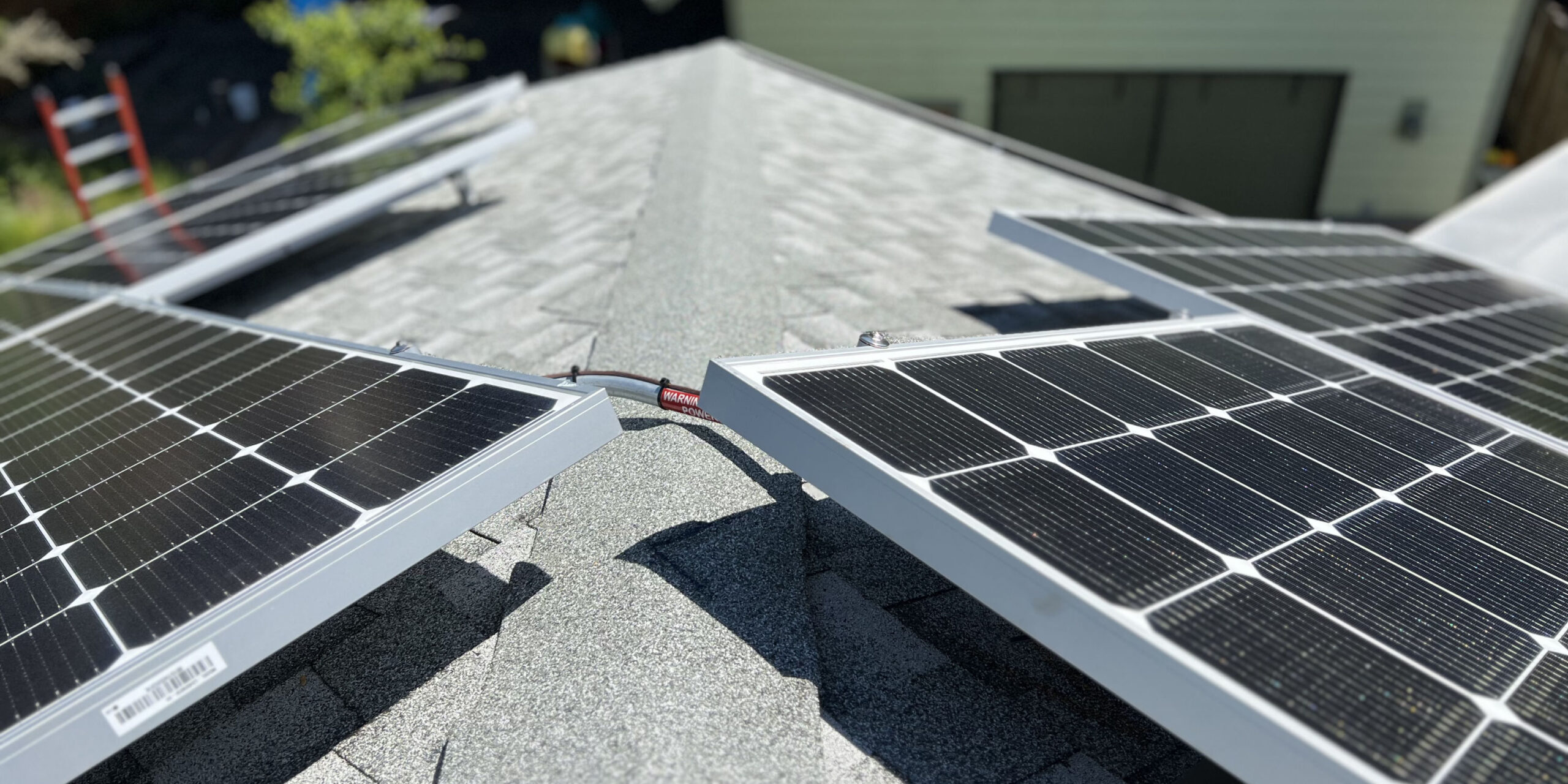
Go solar —
and save
Most solar electric systems pay for themselves with the clean renewable energy they produce on site.
When you start generating power from the sun, your monthly electricity bill will drop, because you are making your own electricity. Moreover, if your system is tied to the grid, any excess power your panels produce can normally be sold back to your utility for cash or credit.
Over time, these savings add up, to pay back your initial investment.
Net metering vs. Net billing
If you have a solar system that is “grid-tied” — that is, your system is connected the to larger utility grid, there can be a give and take of power between your system and the grid.
If you need more energy than your solar panels are generating, you draw the difference from the grid, and you owe the utility for that extra power you consume. But if your panels are producing more power than you are consuming on-site, the excess is sent out onto the grid.
There are a couple of different methods that utilities use to account for this, and which determine how you are compensated when your system is producing more watts than you are using: These methods are called “net metering” and “net billing.”
How ‘net metering’ works
With net metering, generally, you receive credit for any power you send onto the grid at the retail price of electricity — that is, the amount that ordinary utility customers pay.
It’s not usually a monetary exchange. You don’t get a check from the utility. Instead, your credits are “banked,” and you can then use them when you need to pull electricity from the grid, as on a cloudy day.
Net-metering credits can be rolled over from month to month. In this way, in Oregon, your credits tend to accumulate in the summer, and then you can draw on them during the winter, when days are short and cloudier.
Net metering usually works as a one-to-one exchange. A kilowatt-hour from your solar system is worth the same amount as a kilowatt-hour from the grid. This simplifies your energy bill, as you are only billed for your “net energy use” — that is, the number of kilowatt-hours you use minus the kilowatt-hours your system produces.
Net metering makes home solar systems more valuable to the end user. However, utility companies argue that because the retail price of electricity reflects the business expenses of the utility, in addition to the value of electricity, net-metering credits are worth more than the actual value of electricity and delivery.
Still, most utility providers in the state of Oregon offer true net metering. Some, however, such as Eugene Water & Electric Board, use net billing instead.
How ‘net billing’ works
Unlike net metering, net-billing credits are based on the wholesale cost of electricity — that is, the amount your utility company pays for electricity, not what it charges its customers.
Instead of “banking” the credits earned from excess energy generated by your solar panels, net-billing programs enable you to basically “sell” your excess energy to the utility at this wholesale rate, as a monetary exchange.
In this way, a small-scale residential solar system is treated more or less like a large-scale solar generation project.
For a homeowner or small business, remember that the compensation you receive for excess power under a net-billing system is typically lower than it would be with net metering.
Eugene Water & Electric Board has used a net-billing model for the past few years. Therefore, investments in solar systems in EWEB territory take a little longer to pay back than those in other utilities in Oregon.
Additionally, we are expecting to see PGE and Pacific Power adopt a similar net-billing programs by 2025.
Avoided-cost
Unlike most retail net-metering programs, avoided-cost bill credits don’t translate to a one-to-one compensation setup. Instead, participants receive credits equal to the price of the utility saved by not having to provide electricity to their homes.
Since the transaction is monetary and not a one-to-one exchange, avoided-cost rates can be classified as net billing rather than net metering.
How solar compensation programs affect your savings
All of this means that your solar electric system saves you money on power in two ways.
First, of course, you don’t have to pay anything for the ongoing use of the power your panels generate.
Second, net metering or net billing will make sure you never “lose” the value of any excess electricity your system produces on a sunny day.
You can essentially “store” that energy, and use it when you need it — on a cloudy day or at night.
The one-to-one exchange of net metering usually translates to lower electricity bills, a shorter payback period, and a more favorable return on investment. Net billing can also contribute to a shorter payback period and boost overall savings, but it’s less valuable for solar owners than net metering.
To maximize your savings, regardless of your local compensation program, you can always adjust your consumption habits or install an energy storage system (such as lithium batteries) to store your excess energy instead of selling it to your utility.
Of course, net metering and net billing only apply to “grid-tied” systems. If you are thinking of an “off-grid” system, storing excess energy in an on-site battery system is a great option to get the most efficiency from your solar panels. We set up battery storage systems as well.
Learn more
- Energysage has more information on determining how long a solar system takes to pay for itself.
- The team at Enphase has produced a great recorded webinar on reading your utility bill after a solar installation.
- For a nationwide take on net metering, see The Solar Energy Industry Association (SEIA) has a nationwide take on net metering.